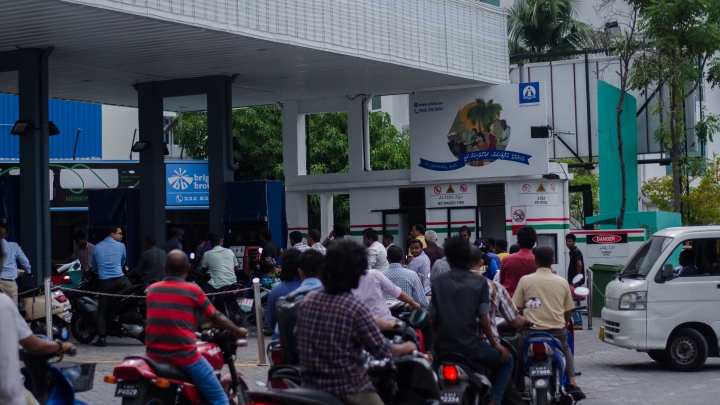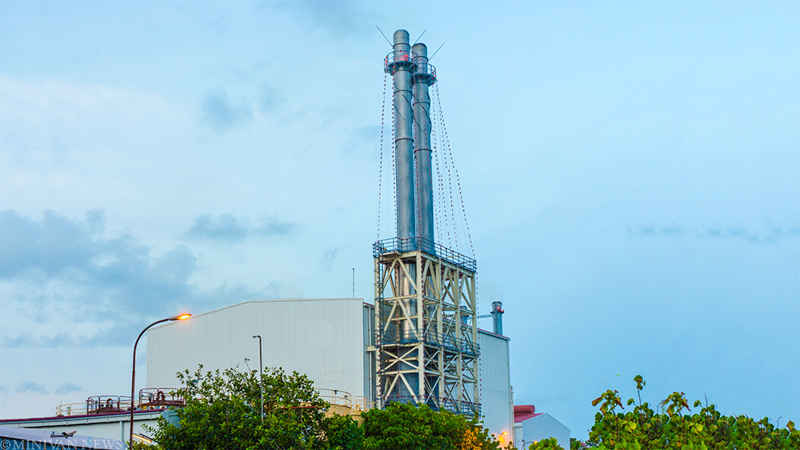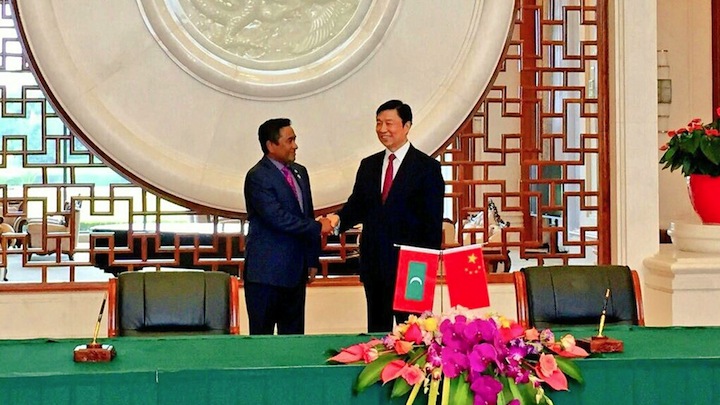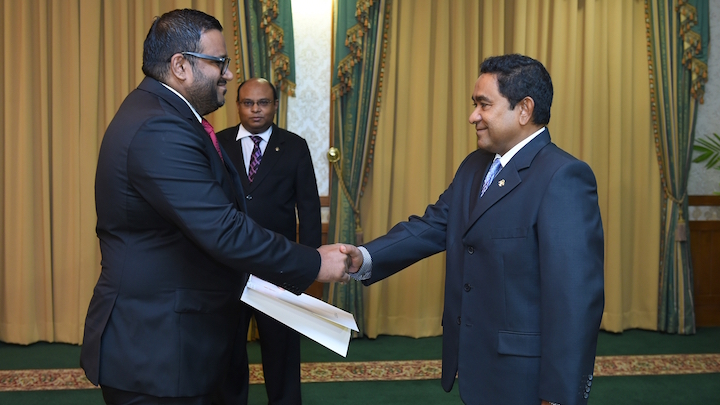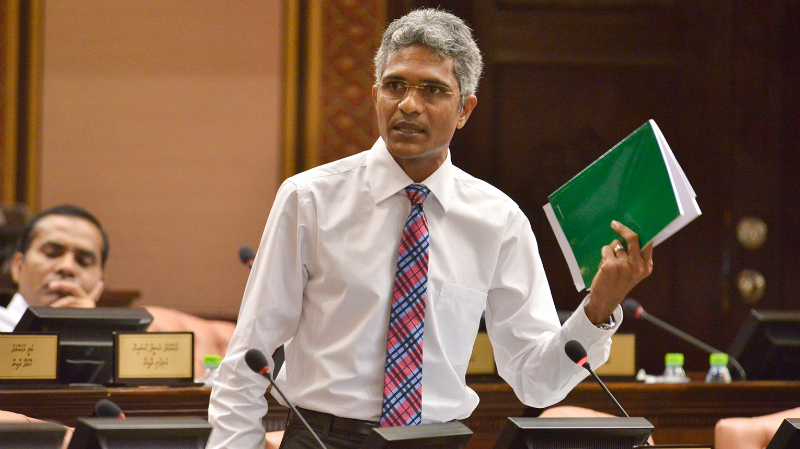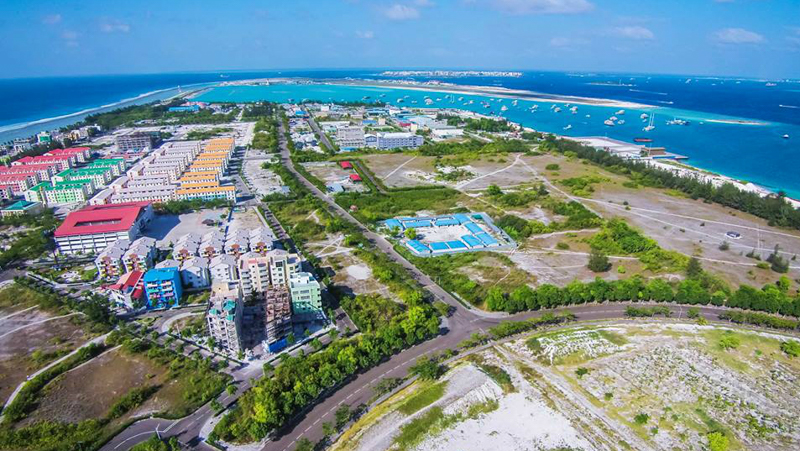Dismissing former president Maumoon Abdul Gayoom’s call for a public referendum on foreign freeholds in the Maldives, vice president Ahmed Adeeb said today: “The former president has raised his personal concerns. But the president of Maldives today is President Abdulla Yameen.”
Gayoom, the leader of the ruling Progressive Party of the Maldives (PPM) and half brother to President Yameen, urged the president to seek public opinion on ratifying the constitutional amendment.
In a letter sent to President Yameen and shared with the media, Gayoom said previous governments had refrained from selling parts of Maldivian territory to prevent influence over the country’s independence, sovereignty, and resources.
This is the first time Gayoom has publicly opposed Yameen.
Addressing Gayoom’s concerns, newly appointed vice president Adeeb said: “How can we govern if we are to call referendums on every issue? We’ve only been in government for two years. We also have aims, hopes, and responsibilities. President Yameen has to be accountable and fulfill his pledges. Not everyone will agree on every step he takes for economic reform.”
People are resistant to change, but approving foreign freeholds is a change that must happen, Adeeb said at a press conference today. The decision had been difficult for President Yameen, he added.
President Yameen ratified the amendments today.
Meanwhile, the president’s office yesterday said President Yameen will not respond to any letters shared with the media before the president responds to the letter.
The unprecedented provisions will allow foreigners who invest more than US$1billion to purchase land. At least 70 percent of the project site must be reclaimed.
The constitution previously prohibited foreign ownership of any part of Maldivian territory, but allowed leasing of land for up to 99 years.
The amendments were approved within a day after they were submitted to the People’s Majlis. Parliamentary standing orders were changed beforehand to fast-track the process of passing a bill into law.
Some 70 MPs of the 85-member house voted in favor. Gayoom’s son, MP Ahmed Faris Maumoon, had voted for the amendment as well as Adeeb’s appointment as the new vice president yesterday.
Rumors had spread this week that Gayoom opposed Adeeb’s appointment. However, the PPM leader has repeatedly denied favouring a particular candidate, stating that the appointment of a deputy is the sole prerogative of the president.
Attorney General Mohamed Anil meanwhile said the president is not obliged to hold a referendum on foreign freeholds. Article 262 (b) of the constitution states the president is obliged to call referendums on changing provisions in the bill of rights or the presidential and parliamentary terms.
Ten MPs of the main opposition Maldivian Democratic Party (MDP) and nine MPs of the Jumhooree Party (JP) also voted in favour of the unprecedented changes.
MPs opposed to the move expressed concern over possible Chinese military expansion in the Maldives, and the lack of time to review the amendments.
Dismissing concerns over the establishment of military bases, Adeeb said today: “We are not going to sell our lands to any country. We are trying to do business here. We want to bring in many corporate investments. We are not going to sell land to other countries, whether its China or Saudi Arabia. We are not gifting our land to other parties. We want to mobilize investments worth at least US$1billion.”

